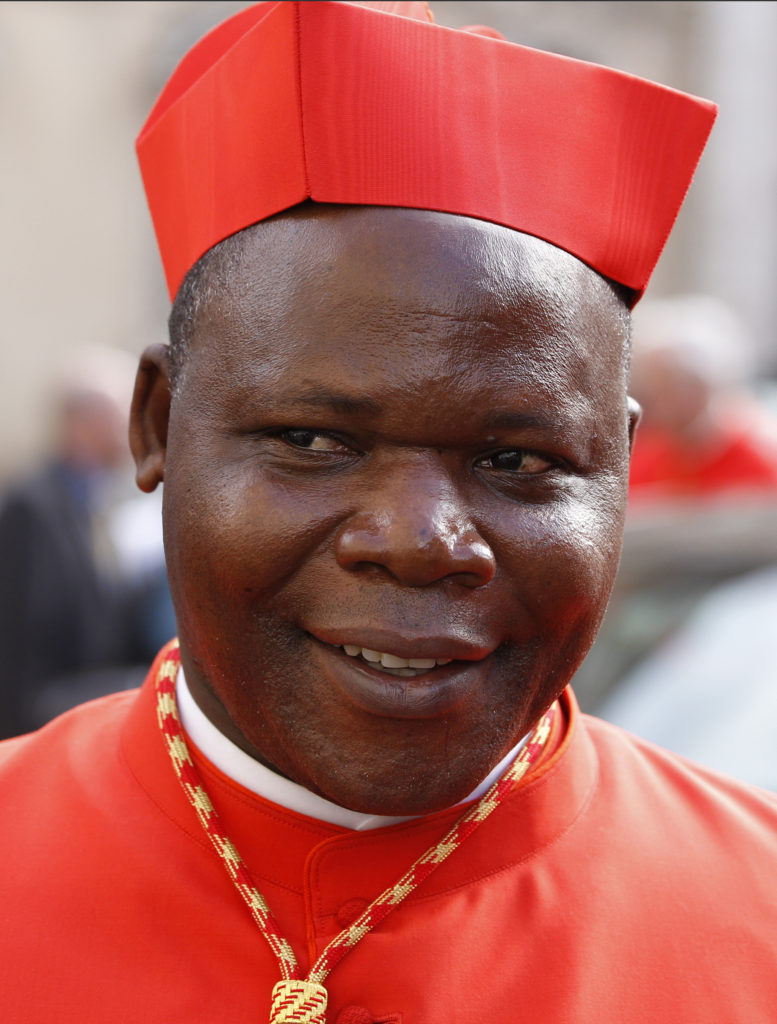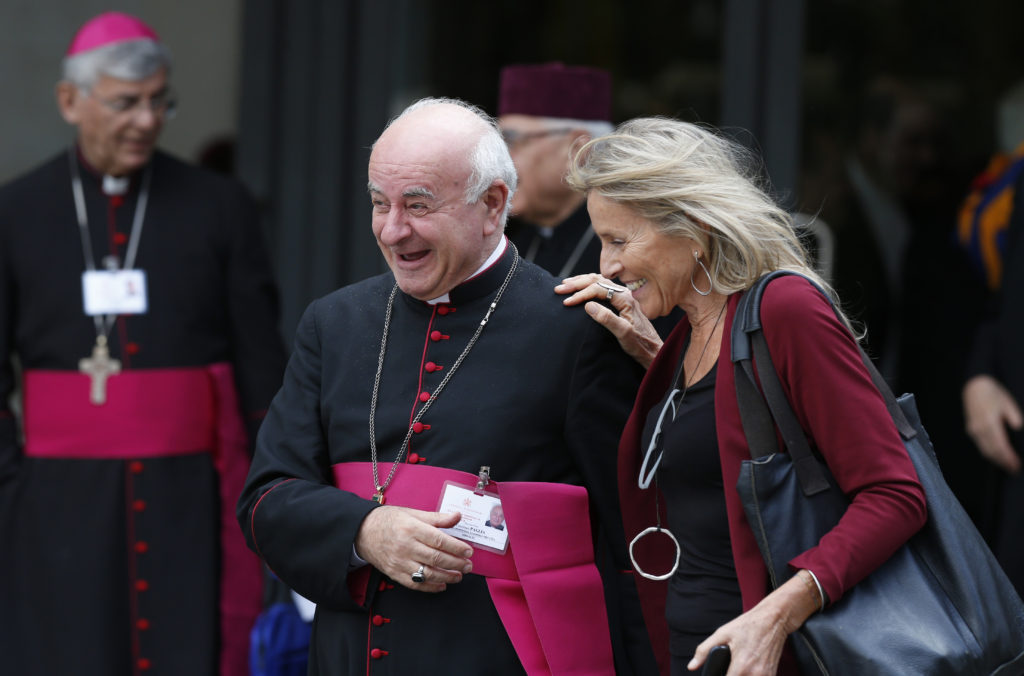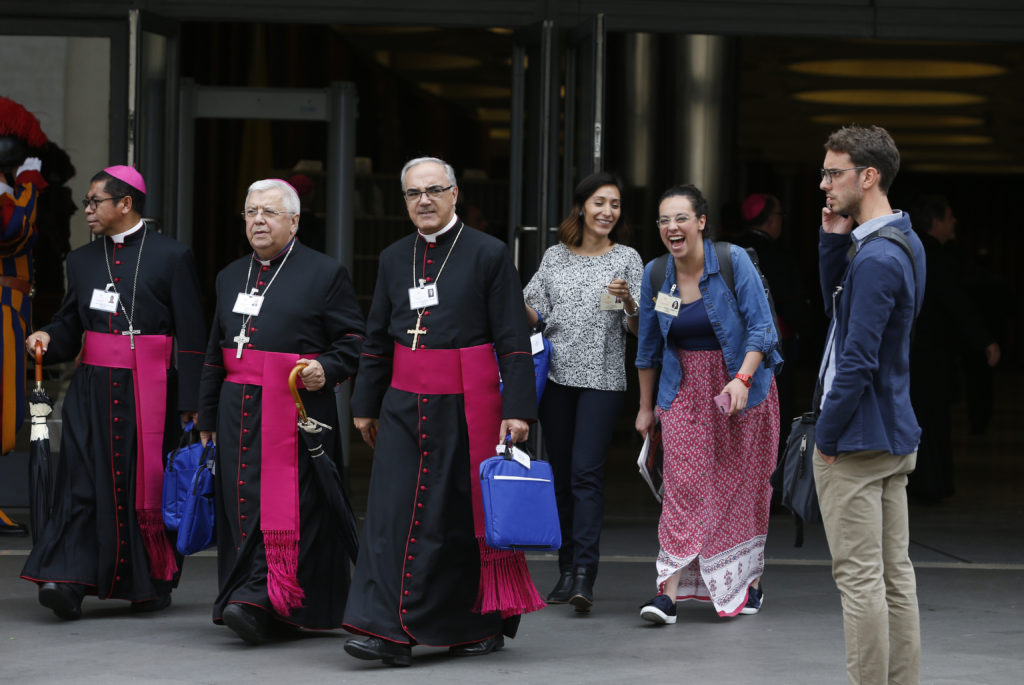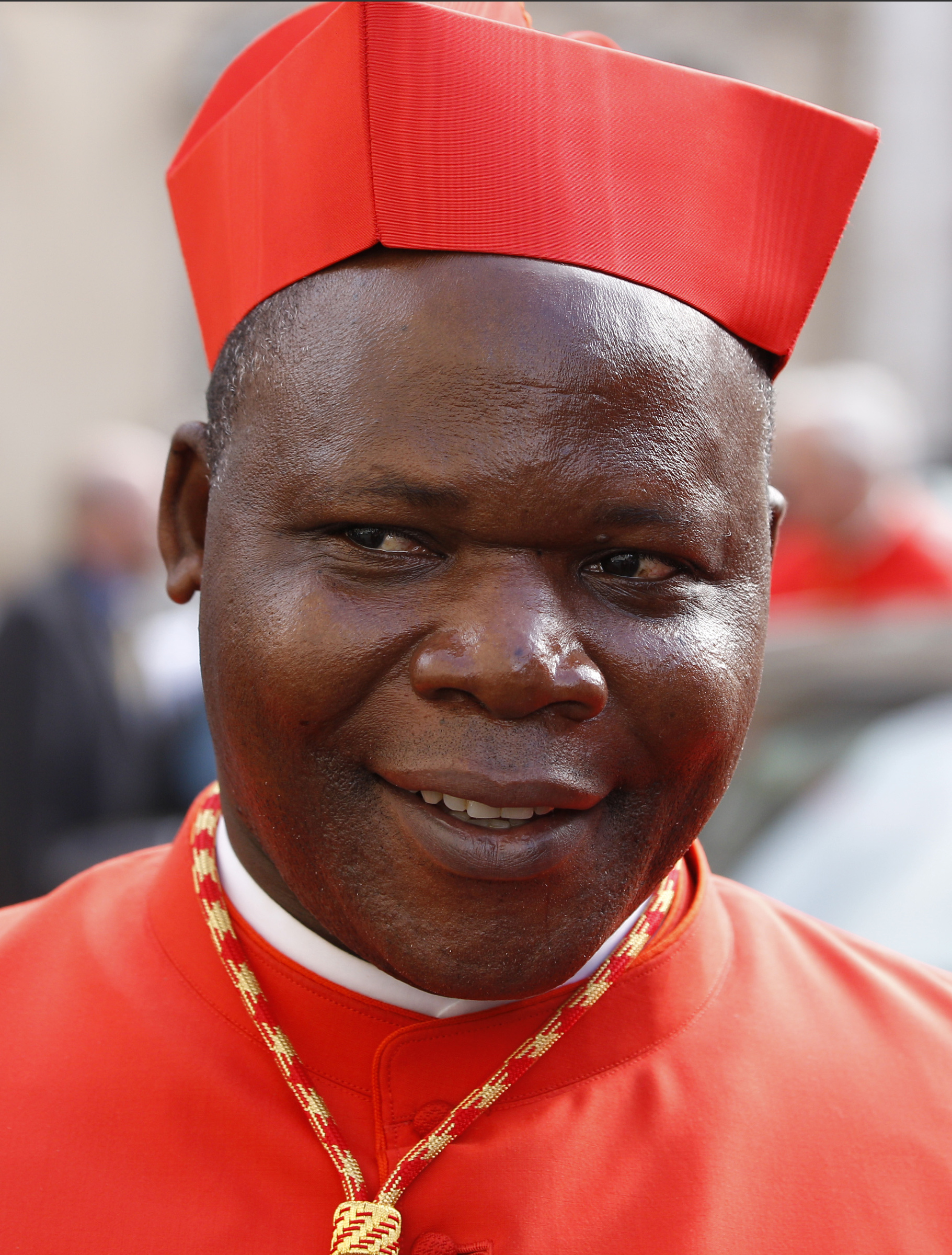
By Cindy Wooden
Catholic News Service
VATICAN CITY (CNS) — The Catholic Church’s youngest cardinal, 51-year-old Cardinal Dieudonne Nzapalainga of Bangui, Central African Republic, said the key question before the Synod of Bishops is: “What is God trying to tell us through young people?”
Finding better ways to pass the faith on to younger generations is one part of the task, the cardinal told reporters Oct. 6. The other part is to encourage them and support them in sharing the faith with others.
Participants in the synod of bishops — the 267 voting bishops, priests and religious brothers, as well as the 72 experts and observers — spent the evening of Oct. 5 and the morning of Oct. 6 getting to know each other in their small groups, which are divided by language.
The groups, taking what they hear in the synod’s general assembly sessions, are to make suggestions for a final synod document.
The Vatican does not publish the texts of speeches given in the sessions but allows the bishops to do so.
Auxiliary Bishop Mark Edwards of Melbourne, addressing the synod during the morning session Oct. 5, suggested taking St. John Vianney and his experience in Ars, France, as a model.
Moving to Ars, the bishop said, St. John Vianney did not know exactly where the town was, so he convinced a shepherd to take him, promising, “If you show me the way to Ars, I will show you the way to heaven.”


And once the priest arrived in the town, he said, he got to know it and its people, not treating it “as a version of the previous parish where he had worked.”
“We stand at the edge of a new era,” Bishop Edwards told the synod. “We knew how to be Church in the past, how to pass on the faith and how to be effective missionaries,” but “at least some of what we did isn’t effective anymore.”
Young people, though, “more instinctively grasp the lay of this land with its values of equality, inclusion, respect, authenticity and the integration of multiple aspects of life such as body and soul.”
Bishop Edwards did not suggest that older Church members just give up, but said an “intergenerational encounter” is necessary. Church leaders and ministers must say to young people, “You show us the lay of this land, the way to the place where you dwell, and we will show you the way to God.”
Walking with young people, elders in the faith can help them encounter Christ, the bishop said. “When they meet Jesus, he will change their hearts. And this will enable them to discover appropriate ways to live fruitfully and really humanly and as effective Church in the tensions of this new age.”
Archbishop Luc Cyr of Sherbrooke, Quebec, spoke to the synod Oct. 4 about the importance of guiding and protecting the freedom of Catholic young people involved in new movements or religious communities.


When young people feel a call to religious life, “we must do everything to assure that their freedom” is respected, he said. In some groups, he said, “it was evident that the exploration of a vocation was not done in conditions that were favorable to making an informed choice.”
The archbishop did not mention any group by name. However, his archdiocese is home to the Marie-Jeunesse Family, which in January closed all but its Sherbrooke house and began what it termed a period of “deep restructuring.”
Archbishop Cyr told the synod that when young people are enveloped too quickly in a community “where the way of life leaves little space for freedom and empowerment,” some of them experience enormous pressure to enter religious life and don’t realize until they are in their 30s or 40s that they had not made the choice in full freedom.
For “healthy discernment” of a vocation, a young person needs a wise guide, the availability of a counselor outside the group and continued contact with his or her family, the archbishop said.
“Above all,” he said, “it is important to reiterate to everyone that the Lord calls people freely to freedom.”
Ukrainian Catholic Bishop Bryan Bayda of Saskatoon, Saskatchewan, spoke to the synod about how young people are looking for authentic Christians to accompany them and that means people who will challenge the young to be authentic Christians themselves.
“Youth seek relationships of trust and discover how certain people, places or things either support or deceive them in their search,” he said. “They want commitment from others as they search for belonging, safety, honesty, integrity, peace and meaningfulness in life.”
Over time, he said, they should “discover their vocation in life is to become the very people they seek in friendships; that is, recognizing holiness is desirable, visioning themselves as holy and pursuing holiness.”






